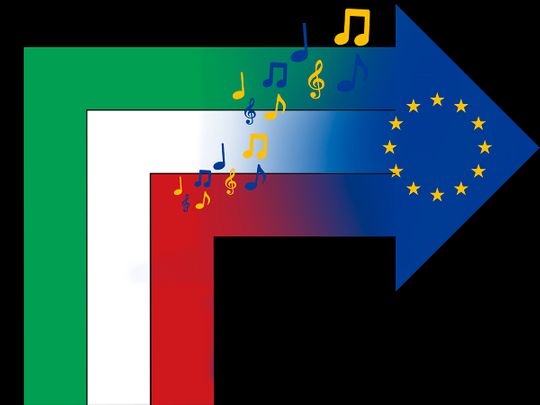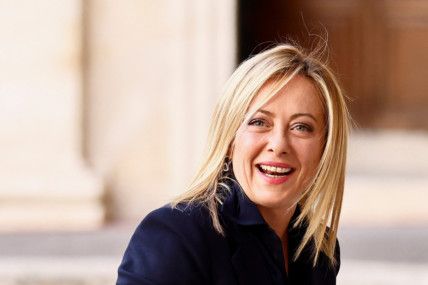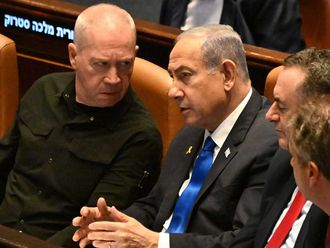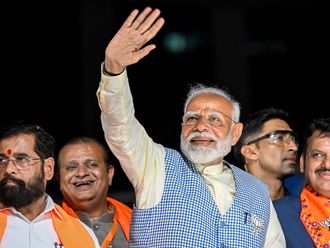
Christmas Day marks three months since Italian voters took a sharp right turn and handed the Brother of Italy and others on that side of the political spectrum a clear mandate to change the way the European Union’s third-largest economy is governed.
The institution of the EU itself, and its inherent Liberal-Democratic values, do not necessarily sit well with governments on the right. Indeed, Giorgio Meloni, the leader of the Brothers of Italy and now that nation’s new Prime Minister, had long been a vocal opponent of the way Brussels goes about its business. That was the theory, anyway.
Now, when the rubber hits the road and Meloni and others have to deal with the actual business of running the country rather than just talking about the things they would like to do — well it seems it’s a slightly different story.
It’s not so much that Meloni has changed her tune — it’s more that she’s falling into the line and singing from the same song sheet as the rest of the bloc’s political leaders. With the worst military conflict in Europe since the Second World War raging just outside the easternmost flank of the EU, now is not the time, it seems for Meloni to be rocking the boat by railing against Brussels.

No, far from it, it seems, if these past three months have been anything to go by.
National budgets, according to strict EU rules, must stay within a strict range that limits the ability to borrow, the ability to spend, and to ensure that all of the 27 nations adhere to the same basic principles that don’t allow for too much spending or too much borrowing — Goldilocks economics as it were.
During her election campaign, Meloni, who entered Italy’s crowded political scene in 2006 and cofounded the Brothers of Italy in 2012, had always spoken of her Euro-scepticism and anti-refugee policies.
The campaign was dominated by hot-button issues including Italy’s cost-of-living crisis, a €210 billion (Dh816 billion) package from the European Covid-19 recovery fund and the country’s support for Ukraine.
Italy too is saddled with a huge debt burden, one that means that for every €1 in circulation in its economy, it owes €1.33. Its population is also ageing and its birth rate falling. Even so, one-in-four under the age of 20 are without work.
Facing that type of a fiscal straitjacket, vocal supporters on the right called for urgent action to allow for radical economic change that would exceed the fiscal constraints and draw EU ire.
Not so. Not with €210 billion in that covid recovery fund coming from the EU.
Meloni’s budget, however, managed to appease both her supporters and Eurocrats in Brussels.
It focused on curbing sky-high energy bills brought about by the conflict in Ukraine and cutting taxes from next year for both workers on payrolls and the self-employed.
Italy’s deficit is targeted to fall to 4.5 per cent of gross domestic product from 5.6 per cent — itself on the face of it remarkable. The reality is that those sky-high energy bills also generate large sums of tax revenue, allowing Meloni to appear as a fiscal moderate on paper.
She also imposed a hike in a windfall tax on energy companies that have benefited from the surge in oil and gas prices. The budget also taxes capital gains on cryptocurrencies.
And that ageing population? From next year Italians will be able to draw a pension from the age of 62 provided they have paid in at least 41 years of contributions. That compares with the current rule, put in place for just this year by the previous government, allowing people to retire at 64 provided they have worked for 38 years.
A more Brussels-friendly line
In Brussels, the budget was met with some relief. There were concerns over unbridled spending in the run-up to the budget. Those now seem unfounded, as Meloni’s government restrained its spending plans and conformed to a more Brussels-friendly line.
Indeed, since being elected, Meloni has now begun to make smoothing noises about the EU — a different tune that during the campaign.
“I am happy with the climate I found in Brussels,” the 45-year-old told reporters after meeting European Commission President Ursula von der Leyen, European Parliament President Roberta Metsola and European Council President Charles Michel in Brussels last month.
Surprisingly, the Belgian capital and home to the EU administration was the choice for her first foreign trip since becoming PM — a fact that was not lost on some of her detractors.
If there is going to be a flash point in the coming months, it will be in her government’s refusal to process refugees who are landed on Italian territory after being picked up in the Mediterranean.
According to the latest statistics, more than 103,00 refugees fleeing political and economic strike across North and sub-Saharan Africa landed in Italy up to October. That’s a figure Meloni would like to see reduced as quickly as possible — and she’s not alone in that thinking when it comes to similar sentiments in European capitals.
If there is a positive in Meloni’s election, it is that Brussels doesn’t seem to have the same level of concern as it does with Hungary and its right-wing PM, Viktor Orban. For now, it seems as if Meloni is playing ball with Brussels. And yes, that €210 billion economic aid package certainly is a factor.









